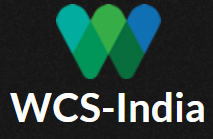Cause Area
Primary Sectors
Secondary Sectors
Financials
-
2020
Total IncomeRs.117,893,614Total ExpensesRs.116,423,134Non Program ExpensesRs.28,479,714Program ExpensesRs.87,943,420Tip: Click on any value above to exclude it. -
2021
Total IncomeRs.116,759,515Total ExpensesRs.116,607,766Non Program ExpensesRs.32,818,168Program ExpensesRs.83,789,598Tip: Click on any value above to exclude it. -
2022
Total IncomeRs.142,071,700Total ExpensesRs.141,522,000Non Program ExpensesRs.453,218Program ExpensesRs.962,001Tip: Click on any value above to exclude it. -
2023
Total IncomeRs.182,596,000Total ExpensesRs.177,758,400Tip: Click on any value above to exclude it. -
2024
Total IncomeRs.171,097,300Total ExpensesRs.167,344,200Tip: Click on any value above to exclude it.
Geographies Served
Programs
-
Carnivore & Herbivore Ecology & Conservation Programme
District
Udupi
Chamrajnagar
Prakasam
South Kannada
Nalgonda
Nilgiris
Chickmagalur
Mahabubnagar
Wayanad
Nandyal
Mancherial
States
Andhra Pradesh
Karnataka
Tamil Nadu
Kerala
Telangana
WCS-India's Carnivore & Herbivore Ecology & Conservation Programme prioritizes tiger conservation by supporting Government efforts for multiple thriving tiger populations. Activities include fieldwork, policy initiatives, voluntary relocation, carnivore conflict management, enforcement support, and capacity building. Threats like habitat loss, poaching, and human-wildlife conflict are addressed through habitat consolidation, law enforcement assistance, and scientific population monitoring. WCS-India actively engages in policy interventions, collaborates on conflict management, and assists with post-relocation support. Capacity-building workshops enhance ecological monitoring and promote sustainable conservation practices.
-
Counter Wildlife Trafficking Programme
States
West Bengal
Jharkhand
Nagaland
Telangana
In its Counter Wildlife Trafficking Programme, WCS-India aims to support mandated agencies in effectively combating wildlife trafficking. The organisation collaborates with the Government to improve conviction rates, dismantle organized trafficking networks, and ensure the thriving of India's wildlife. Acting as a facilitator, WCS-India provides access to information, skills, technologies, and expert support required to tackle wildlife-related crimes. It conducts training workshops for various Government departments, law enforcement agencies, and the judiciary, focusing on professional wildlife crime investigations and promoting inter-agency collaboration. WCS-India has established formal partnerships with state forest departments and security forces and provides technical assistance through a dedicated helpline, pro bono legal support, a smartphone application, and a wildlife crime database with investigative analysis software.
-
Desert Landscape Programme
District
Jaisalmer
States
Rajasthan
In its Desert Landscape Programme, WCS-India focuses on the conservation of the Thar Desert in Rajasthan, India. The programme emphasizes a holistic, community-based approach, recognizing the interdependencies between the local communities and the unique wildlife of the desert. WCS-India aims to build pride and engagement among the local communities by involving them in outreach activities and conservation initiatives. The programme includes veterinary camps for livestock care in remote herder settlements, assistance in the reconstruction and maintenance of traditional wells called beris, awareness activities for children to foster an appreciation for the region's wildlife, and collaboration with the education department to provide qualified tutors in village schools. This community-based conservation approach aims to strengthen wildlife conservation efforts and create opportunities for future participatory conservation in the Thar desert.
-
Dhole Project
StateStates
Karnataka
The Dhole Project by WCS-India focuses on the conservation of the endangered dhole, also known as the Asian wild dog. The organisation conducts research studies at various scales to understand dhole ecology and conservation requirements. It analyzes dhole diet patterns, human-dhole interactions, and the impact of livestock predation. WCS-India has created a strategic roadmap for dhole conservation in India, considering ecological, social, biogeographic, and political factors. It has also conducted a thorough review of dhole literature and identified knowledge gaps for future research. The project aims to link individual dholes, packs, populations, and meta-populations through ecological research, capacity-building, citizen science, and conservation outreach. WCS-India's findings have revealed a decrease in dhole-occupied areas in Karnataka's Western Ghats. The project strives to develop recommendations to protect dhole populations across their extensive geographic range.
-
Eastern Ghats And Telangana Programme
StateDistrict
Prakasam
Nalgonda
Mahabubnagar
Nagarkurnool
Nandyal
Mancherial
States
Andhra Pradesh
Telangana
In the Eastern Ghats And Telangana Programme, WCS-India focuses on conserving the diverse wildlife found in the region. Its activities include tiger and prey monitoring, human-wildlife conflict mitigation, voluntary relocation support, capacity-building workshops, legal interventions, and protected area strengthening. WCS-India assists with scientific monitoring, surveys for tiger presence and prey distribution, crop protection, ex-gratia payments, de-snaring drives, and electric line monitoring. It also facilitates voluntary relocation, conducts capacity-building workshops for frontline staff, and provides legal and emotional support to forest personnel. The goal is to ensure thriving populations of all species in this biodiverse landscape.
Registration Details
-
PAN Card
AABCW0843R
-
Registration Number
U74999KA2011NPL058034
-
CSR Form 1
Not Available
-
80G
AABCW0843RF20155
-
12A
AABCW0843RE20214
-
FCRA
94421741
About
-
Headquarters
Bangalore, Karnataka
Impact
WCS-India's work has helped protect critical habitats, reduce human-wildlife conflict, combat wildlife trafficking, and conserve endangered species like tigers, elephants and marine life across India.
Vision and Mission
WCS-India's mission is to retain, recover and restore wildlife and ecosystems through inclusive, evidence-based action, sustained engagement and creative communication to continue to inspire people.
Political & Religious Declarations
-
Political Affiliation
-
Religious Affiliation
Location
-
Offices in Cities
Other Details
-
Type
Non-profit
-
Sub Type
Section 8 (formerly Section 25)
Website
Technology Adoption
-
SOC 2 Compliant
No
-
Financial Management
-
Beneficiary Management



